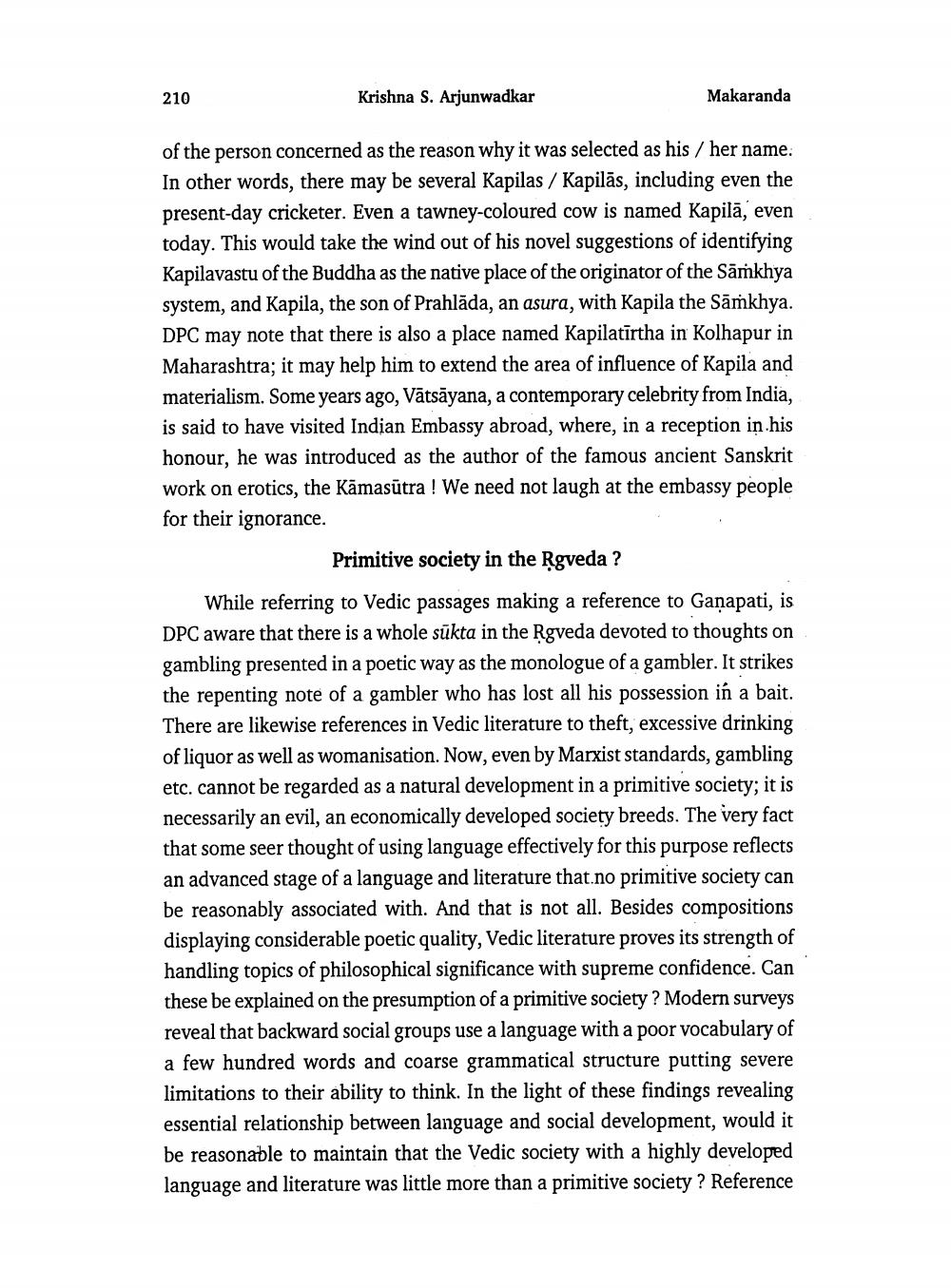________________
210
Krishna S. Arjunwadkar
Makaranda
of the person concerned as the reason why it was selected as his / her name. In other words, there may be several Kapilas / Kapilās, including even the present-day cricketer. Even a tawney-coloured cow is named Kapila, even today. This would take the wind out of his novel suggestions of identifying Kapilavastu of the Buddha as the native place of the originator of the Samkhya system, and Kapila, the son of Prahlada, an asura, with Kapila the Samkhya. DPC may note that there is also a place named Kapilatīrtha in Kolhapur in Maharashtra; it may help him to extend the area of influence of Kapila and materialism. Some years ago, Vatsāyana, a contemporary celebrity from India, is said to have visited Indian Embassy abroad, where, in a reception in his honour, he was introduced as the author of the famous ancient Sanskrit work on erotics, the Kamasutra! We need not laugh at the embassy people for their ignorance.
Primitive society in the Ṛgveda ?
While referring to Vedic passages making a reference to Ganapati, is DPC aware that there is a whole sukta in the Ṛgveda devoted to thoughts on gambling presented in a poetic way as the monologue of a gambler. It strikes the repenting note of a gambler who has lost all his possession in a bait. There are likewise references in Vedic literature to theft, excessive drinking of liquor as well as womanisation. Now, even by Marxist standards, gambling etc. cannot be regarded as a natural development in a primitive society; it is necessarily an evil, an economically developed society breeds. The very fact that some seer thought of using language effectively for this purpose reflects an advanced stage of a language and literature that.no primitive society can be reasonably associated with. And that is not all. Besides compositions displaying considerable poetic quality, Vedic literature proves its strength of handling topics of philosophical significance with supreme confidence. Can these be explained on the presumption of a primitive society? Modern surveys reveal that backward social groups use a language with a poor vocabulary of a few hundred words and coarse grammatical structure putting severe limitations to their ability to think. In the light of these findings revealing essential relationship between language and social development, would it be reasonable to maintain that the Vedic society with a highly developed language and literature was little more than a primitive society? Reference




